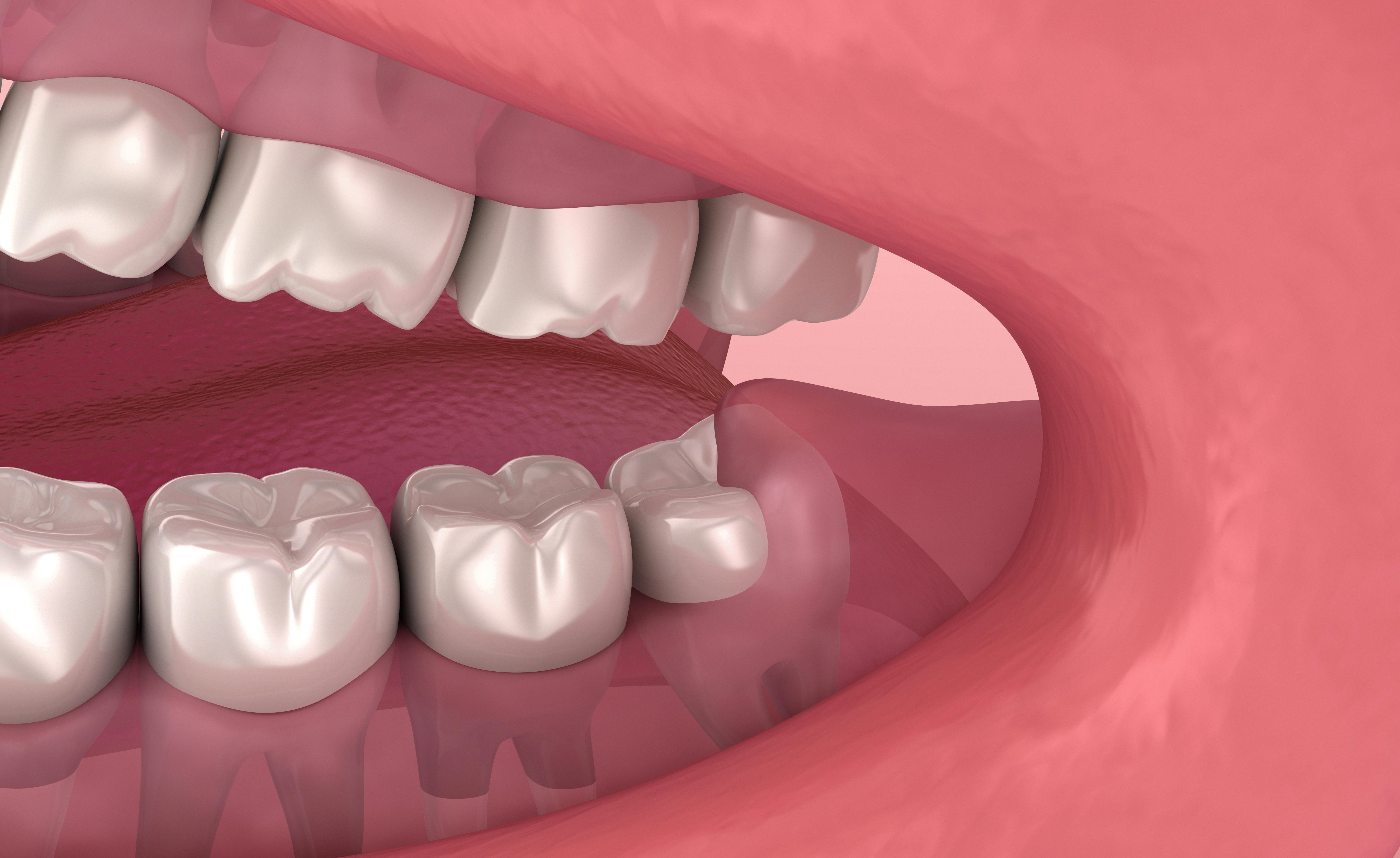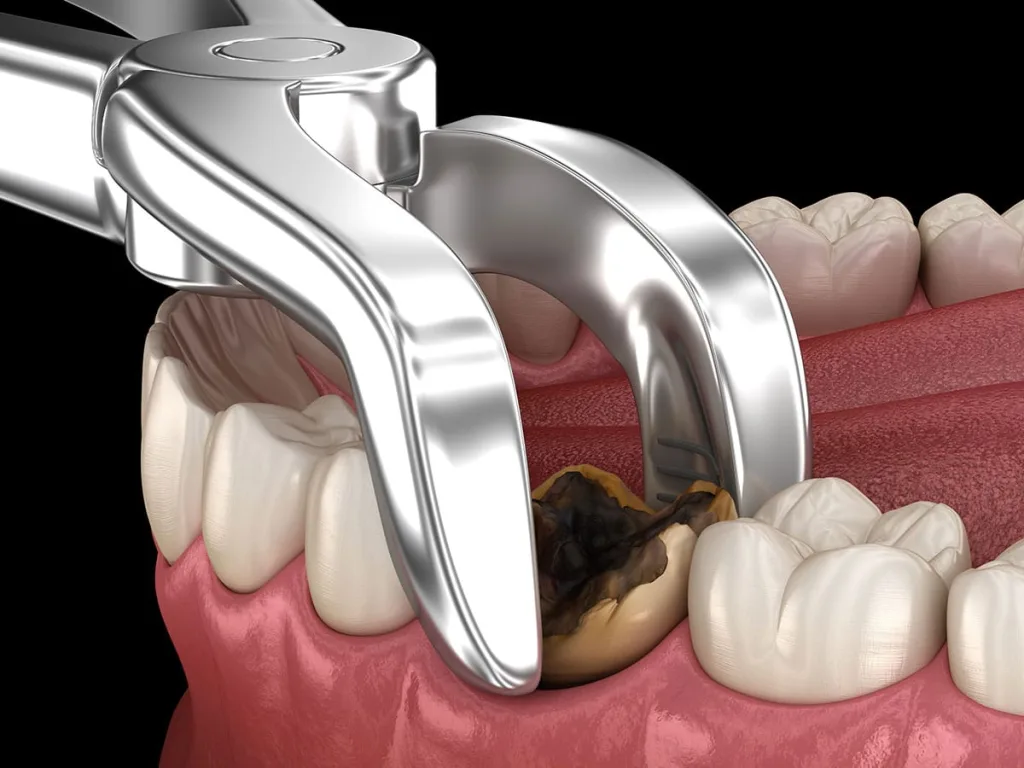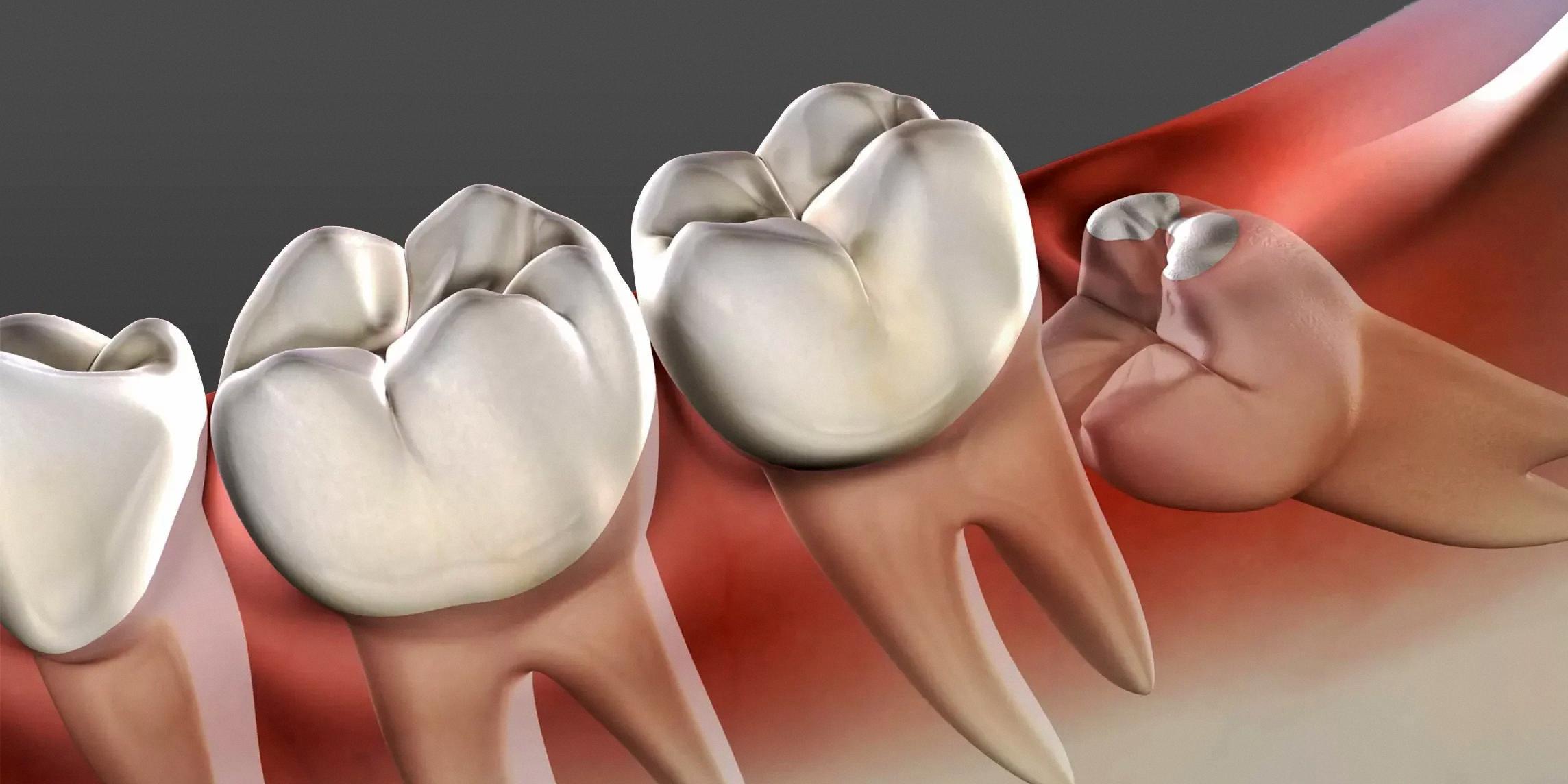Wisdom teeth are the last teeth to erupt in the mouth. They usually appear between ages 17 and 25 and can cause a great deal of pain and discomfort. For many people, it is necessary to have their wisdom teeth removed due to overcrowding or impaction of the teeth. But did you know that wisdom teeth can also fall out naturally?
It is possible for wisdom teeth to come loose over time and fall out on their own withut any medical intervention. This usually happens when there is bone loss or gum disease around the tooth. When this occurs, the supporting bone tissue in the jaw that is holding the wisdom tooth in place disintegrates due to bacteria, causing the tooth to become loose. If left untreated, a severely loose wisdom tooth can eventually fall out naturally.
However, it’s important to note that having your wisdom teeth removed as soon as possible is still recommended for most people in order to avoid potential complications such as overcrowding of other teeth or infection in a partially erupted tooth (which can lead to pericoronitis). In addition, if a wisdom tooth does not erupt and remains impacted then it can cause cysts which will damage gum and bone tissue.
If you are concerned about your wisdom teeth or suspect that one might be coming loose, it’s best to seek professional advice from an oral surgeon or dentist as soon as possible for evaluation and treatment. The earlier you take action, the better your chances of avoiding any further damage or complications associated with impacted wisdom teeth.
The Length of Time It Takes for Wisdom Teeth to Emerge Naturally
Wisdom teeth typically begin to emerge between the ages of 17 and 25. However, the process is not the same for everyone. It can take anywhere from a few weeks to multiple years for wisdom teeth to fully come out. For some people, they may nver come out at all. During this process, you may experience some pain and discomfort as the tooth pushes its way through your gum line. In order to make sure that your wisdom teeth are emerging properly, it is important to visit your dentist regularly and keep an eye on any changes or irregularities in their development.

Source: melrosedentalarts.com
Consequences of Not Getting Wisdom Teeth Removed
If you don’t get your wisdom teeth removed, there can be a number of potential problems. Partially erupted wisdom teeth can lead to bacterial infection called pericoronitis, which can be painful and cause swelling. Wisdom teeth that don’t erupt at all can lead to the development of a cyst around the tooth, which can damage both bone and gum tissue. Additionally, wisdom teeth often come in crooked, making them difficult to clean properly and leading to an increased risk of tooth decay and gum disease.
The Causes of Wisdom Teeth Falling Out
When parts of your wisdom teeth are falling out, it is often caused by a combination of factors. One of the main causes is known as pericoronitis, which is an infection that occurs when the gum tissue arond the tooth becomes inflamed due to bacteria and food particles that can get trapped in the area. This can lead to a pocket forming around the tooth, causing it to become loose and eventually fall out. Additionally, bone loss and gum disease can also cause your wisdom teeth to become loose and eventually fall out. This happens when bacteria erode away at the supporting bone tissue that holds your wisdom tooth in place. In some cases, impacted wisdom teeth may require extraction if they are causing pain or other complications such as cysts or tumors in the area.
Duration of Wisdom Teeth Pain If Not Removed
If a wisdom tooth is not removed, the pain can vary from person to person. Generally, the pain will last for a few days, but in some cases it can be more severe and last for up to two weeks. The intensity of the pain is usually determined by the impacted wisdom tooth’s location, its angle, and whether or not there is an infection present. Additionally, if the gum tissue arund the tooth becomes swollen or inflamed due to food particles getting stuck in it, this can also increase discomfort. To help ease any pain associated with non-removed wisdom teeth, an over-the-counter pain reliever may be recommended. Proper oral hygiene such as brushing and flossing regularly can also help reduce pain and prevent infection.
Speeding Up Wisdom Teeth Removal
Wisdom teeth removal is a common dental procedure, and the recovery process can vary from person to person. To ensure a speedy recovery, here are five helpful tips:
1. Be mindful of what you eat – After the procedure, stick to soft foods such as applesauce, mashed potatoes, oatmeal and soup. Avoid tough or hard foods like steak and crunchy snacks that may irritate your gums.
2. Rest as much as possible – Allow yourself plenty of time for rest and healing after surgery. This will help reduce swelling and prevent infection.
3. Salt water rinses – Salt water helps to loosen food particles from the area around your wisdom teeth extraction site and reduce inflammation. Try rinsing your mouth with warm salt water several times a day for up to two weeks after the procedure.
4. Keep your head elevated – Whenever you’re lying down be sure to elevate your head with pillows or a couch cushion to help reduce swelling and promote drainage of any fluids that may have accumulated in the area around your teeth extraction site.
5. Book a follow-up appointment – It’s important that you schedule an appointment with your dentist within a few days of having your wisdom teeth removed so they can check on how you’re healing and if there are any problems present that need to be addressed right away.

The Consequences of Leaving Wisdom Teeth In Too Long
If a wisdom tooth is left untreated for too long, it can lead to a number of serious complications. In addition to gum damage and inflammation, patients may experience facial swelling, muscle spasms in the jaw, and swollen lymph nodes. If the wisdom tooth is not removed, it is likely that the gum damage and inflammation will return. Additionally, the impacted tooth could cause other teeth to become misaligned or shifted out of place due to overcrowding or pressure from the impacted tooth. Furthermore, decaying food particles may become trapped between the wisdom tooth and neighboring teeth leading to futher decay and infection. It is important to visit your dentist regularly so that any problems with your wisdom teeth can be identified early and treated appropriately.
Do I Need to Get My Wisdom Teeth Removed?
If your wisdom teeth are causing you pain or discomfort in your mouth, it is likely that they need to be removed. Additionally, if you are experiencing pain or pressure in other areas of your face, such as your head or ears, this could be a sign that your wisdom teeth are causing the issue and need to be extracted. Other signs that you may need to have your wisdom teeth removed include swelling of the gums, difficulty opening your mouth wide enough to eat properly, and having a bad taste in your mouth. If any of these symptoms persist for more than a few days, it is advisable to make an appointment with your dentist to discuss wheher extraction may be the best option.
Consequences of Delaying Wisdom Teeth Removal
If you wait too long to get your wisdom teeth out, you risk developing a condition known as pericoronitis. This occurs when the sac that normally surrounds a wisdom tooth becomes infected. Symptoms of pericoronitis include redness and swelling around the gums, pain when chewing, bad breath, and a bad taste in your mouth. Additionally, if the wisdom tooth isn’t extracted, this sac can become filled with fluid and form a cyst. Jaw cysts can be very painful and can cuse damage to the jaw bone, teeth, and nearby nerves. Over time, the bone around the cyst can be destroyed.
Signs of Rotting Wisdom Teeth
If your wisdom teeth are rotting, you may experience pain or discomfort in the area surrounding the impacted tooth. This could include a dull ache, throbbing pain, or sharp pain when eating or drinking. You may also notice swelling, tenderness, and redness of the gums around the affected tooth. In addition to physical symptoms, you may also experience bad breath or an unpleasant taste in your mouth due to infection. If you suspect that your wisdom teeth are rotting, it is important to visit your dentist right away for proper diagnosis and treatment.

Source: bestdentistinhouston.com
The Benefits of Keeping Wisdom Teeth
The benefits of keeping your wisdom teeth intact are numerous. Properly erupted wisdom teeth can povide added support in the back of the mouth, helping to maintain bone in the jaw and support the temporomandibular joint (TMJ). This can help reduce jaw pain and discomfort as well as improve overall oral health. Furthermore, they can help to fill in gaps created by other teeth that have shifted or been removed, making it easier to chew food without uncomfortable pressure. Keeping wisdom teeth may also help prevent overcrowding of other teeth, which can lead to gum disease, cavities, and other dental problems.
Can Wisdom Teeth Holes Regenerate?
Yes, wisdom teeth holes can grow back. This process is known as healing by secondary intention and involves the body rebuilding the missing tissue that was once occupied by the wisdom tooth. The process of healing by secondary intention begins when a blood clot forms in the socket left by the extracted wisdom tooth, which helps to protect and cover the exposed bone in the extraction site. Over time, new granulation tissue will form in its place, which is made up of collagen and new capillaries that will gradually rebuild and fill in the socket with new tissue. The entire healing process typically takes sveral weeks or months to complete, depending on individual factors such as age, overall health status, and level of oral hygiene.
Conclusion
In conclusion, wisdom teeth are the last of the adult teeth to come in and can cause a variety of issues if not taken care of properly. While most people have their wisdom teeth removed due to lack of space or becaue they are coming in crooked, it is important to take time to understand your own situation when it comes to wisdom teeth. To ensure proper oral health, it is important to go for regular check ups with your dentist and be aware if you are experiencing any pain or discomfort that may be related to your wisdom teeth. If this is the case, it is best to seek dental advice as soon as possible.
